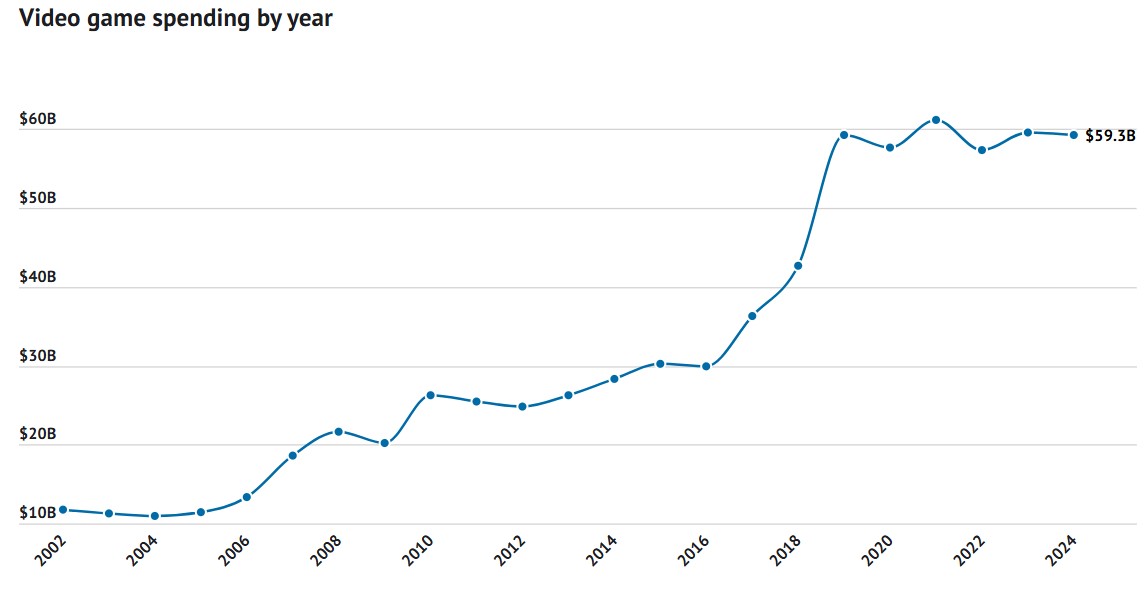- The gaming industry in the US has shown no signs of growth in the past five years.
- In 2020, video games grossed $58 billion, only $1.3 billion less than in 2024.
- The lack of purchasing power of young Americans is a major contributing factor to this predicament.
The gaming industry has no rival in the entertainment world when it comes to money, with video games making more than film, music, and major sports leagues like the NFL combined. In 2024, the industry grossed a whopping $59.3 billion in the US alone, leaving every other entertainment medium in the dust.
Despite such heights, there is a worry among analysts that the gaming market has stagnated and hit its peak. And, new research indicates there might be some solid evidence behind these fears.
Why This Matters: Economic conditions depriving young adults of purchasing games may cause long-term damage to the medium.

According to a report by Fool, the gaming market in the United States has not shown any growth in the past five years following the pandemic-induced boost. In 2020, Americans spent $58 billion on video games, and for half a decade, expenditure has failed to surpass the $60 billion threshold consistently.
In the video game statistics report, Fool reveals that the average American household spent $449 on video games last year, which was a decrease from the $653 average in 2023. In addition, the gaming sector grew 50% from 2019 to 2020, but that kind of growth is no longer visible in the charts.
The gaming market achieved the $61 billion milestone in 2021, but since then, the curve has plateaued after a small resurgence. As per the report, families with kids and the top 20% earners spend the most on video games and their affiliated content.

This also corroborates a previous report that revealed how young Americans were spending 25% less money on video games due to the economic climate. Hence, a major reason for this stagnation is that the target demographic doesn’t have money to buy video games and has to rely on a saturated age group.
Despite this worrying trend in the US, Fool predicts that the global gaming revenue will go up to $260 billion. Hence, time will tell if this is just a slump or the new normal.
Do you think video game revenue has plateaued? Tell us in the comments below or head to the Tech4Gamers forum for discussion.
Thank you! Please share your positive feedback. 🔋
How could we improve this post? Please Help us. 😔
Shameer Sarfaraz has previously worked for eXputer as a Senior News Writer for several years. Now with Tech4Gamers, he loves to devoutly keep up with the latest gaming and entertainment industries. He has a Bachelor’s Degree in Computer Science and years of experience reporting on games. Besides his passion for breaking news stories, Shahmeer loves spending his leisure time farming away in Stardew Valley. VGC, IGN, GameSpot, Game Rant, TheGamer, GamingBolt, The Verge, NME, Metro, Dot Esports, GameByte, Kotaku Australia, PC Gamer, and more have cited his articles.




